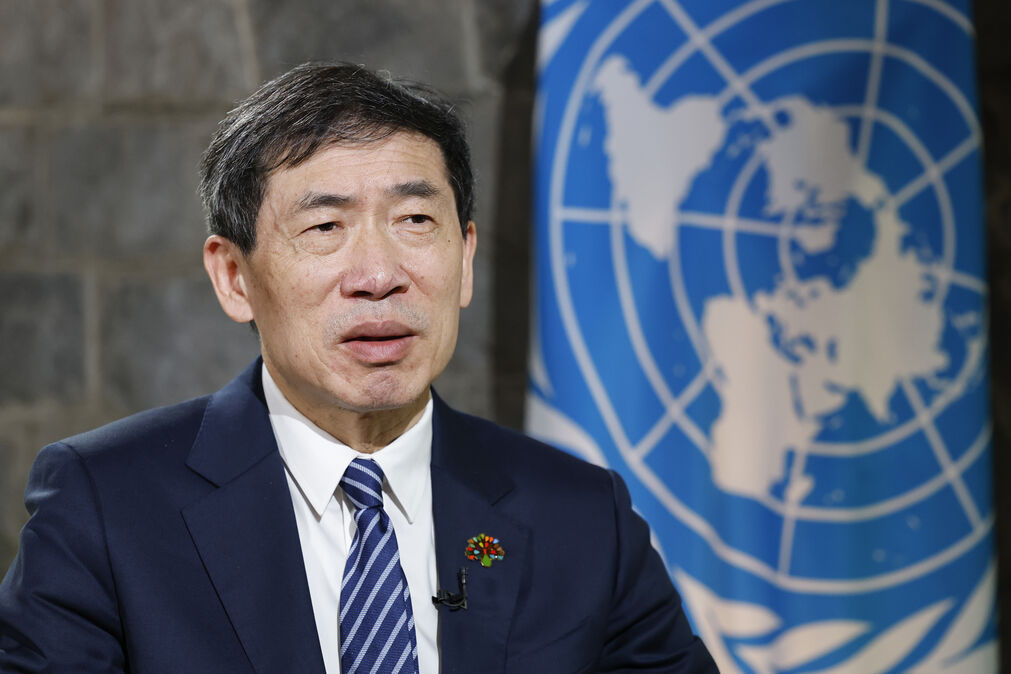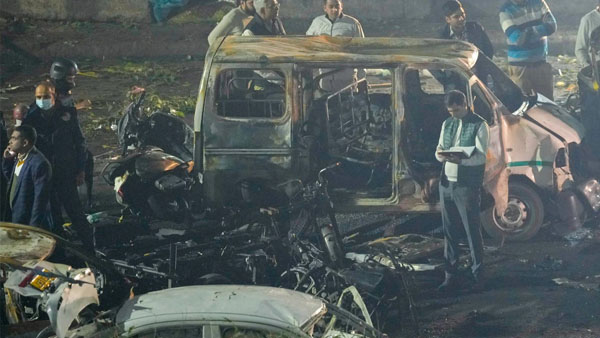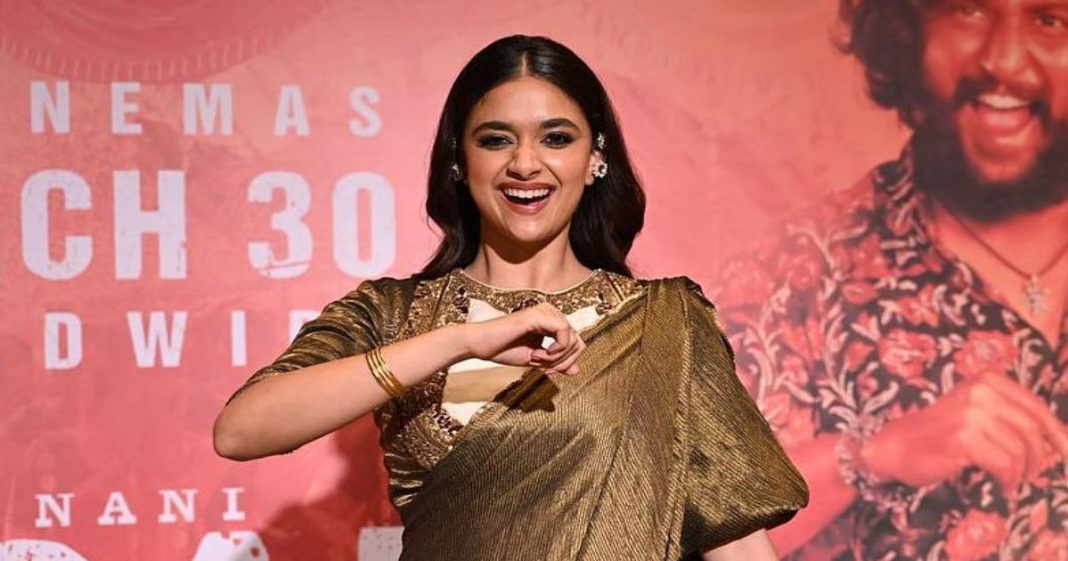New Delhi, Nov 16: India has demonstrated that economic growth and social inclusion can advance together and it is helping translate its success stories into global lessons for a more equitable world, a top official of the UN Development Programme (UNDP) has said.
The India growth story is not only about economic progress, but it is also about using technology and participatory governance to ensure that development objectives are achieved and no one is left behind, UNDP’s Acting Administrator Haoliang Xu said.
In an interview to PTI, Xu said India’s commitment to climate adaptation, renewable energy and inclusive digital finance offers a blueprint for balancing growth with sustainability.
India continues to shape “development pathways” that are both economically sound and climate-responsible, he said.
The UN Under-Secretary-General and UNDP Acting Administrator was in India on a three-day visit to strengthen and identify new areas of cooperation, including in areas of digital transformation and climate action.
Xu, talking about pressing global challenges, said the UNDP’s latest Human Development Index showed that global progress in human development has slowed to a 35-year low and that it has been almost stagnant for the past two years.
At the same time, he lauded India’s development model to address various challenges, including climate change and poverty.
“The country’s commitment to just transitions, climate adaptation, renewable energy and inclusive digital finance offers a blueprint for balancing growth with sustainability,” he said.
“We can work together to align development objectives, development financing from all sources, and effective, accountable and inclusive institutional capacity even more closely,” Xu said in the e-mail interview.
The UNDP chief said India has shown that rapid growth can be matched with deliberate investments in people, especially those historically left behind.
“As a leading voice of the Global South, India is helping translate local success stories into global lessons through South-South cooperation, sharing not only its tools and technology but also the frameworks that make them work,” he said.
Xu specifically referred to India’s flagship programmes, such as the MGNREGA (Mahatma Gandhi National Rural Employment Guarantee Act) and Ayushman Bharat, and said they combined livelihood security with social protection.
He said India’s digital public infrastructure and financial inclusion platforms, including the “Jan Dhan, Aadhaar, Mobile (JAM) trinity and UPI (Unified Payments Interface)” have enabled transparent, direct delivery of benefits to hundreds of millions, setting examples that many nations are now studying.
JAM is an initiative that links a person’s bank account (Jan Dhan), biometric identity (Aadhaar) and mobile number to enable direct benefit transfers (DBT) from the government.
Initiatives like the Aspirational Districts Programme show how data, evidence and community participation can narrow regional gaps and make growth more equitable, Xu said.
The UNDP acting administrator noted that India’s increasing focus on “green jobs and climate-resilient livelihoods” — from renewable energy to community-based conservation — aligns economic opportunity with environmental stewardship and the Sustainable Development Goals.
“The next phase of growth can further expand quality jobs, gender equality, and climate resilience to keep development inclusive and sustainable,” he said.
“India’s story is not only about growth, it is also about using technology, evidence and participatory governance to ensure that development objectives are achieved and no one is left behind,” he said.
“These lessons are shaping a more equitable and sustainable world. Through South-South Cooperation, UNDP is pleased to be India’s partner to share them with other developing countries globally,” he said.
Xu also complimented India’s Unified Payments Interface (UPI) and CoWIN (Covid Vaccine Intelligence Network), saying they are successful as they were built to solve practical, everyday problems.
“The UPI digital payments are as simple as sending a text message. CoWIN tracked the administration of over two billion vaccine doses in record time during the COVID-19 pandemic and gave every person a verifiable vaccination record,” he said.
The UNDP top official said India’s platforms are unique because they run on open, public digital infrastructure.
“This design encourages competition, lowers transaction costs and prevents monopolies.”
“India’s latest digital health innovation, U-WIN (Universal Immunisation WIN) is a cutting-edge digital platform designed to electronically register and monitor the vaccination status of all expectant mothers and children across India,” he said.
“This people-centric platform – developed with technical support from UNDP – tracks and improves vaccine coverage nationwide,” he added.
Xu also called for concrete global efforts to combat climate change.
“Today, developing countries require about USD 2.4 trillion each year for climate action by 2030. The current multilateral finance commitment is reflected in the Baku to Belem Roadmap that calls for all actors to work together to scale up finance to USD 1.3 trillion per year by 2025,” he said.
“Yet accessing climate finance is still far too slow and complex. The climate crisis is here and now, and developing countries need urgent support to achieve their goals at scale,” he said.
On the ongoing COP 30 in Brazil, Xu said finance and cooperation were top of the agenda, along with how the global community can accelerate the implementation of their national climate pledges.
“In particular, countries need financing systems that are simpler, faster and more predictable — with multi-year windows and clear rules, not fragmented projects,” he said.
“Adaptation must also be better funded. Protecting farms, water systems and communities is not charity — it’s smart economics: every dollar invested in adaptation yields up to ten dollars in returns.”
Xu said the UNDP is facilitating the implementation of this vision.
“For instance, with assistance from our UN partners and beyond, 86 countries are now implementing integrated national financing frameworks that aim to channel billions of dollars towards vital SDG areas like climate action, including help align private investment with national development objectives,” he said.(PTI)




